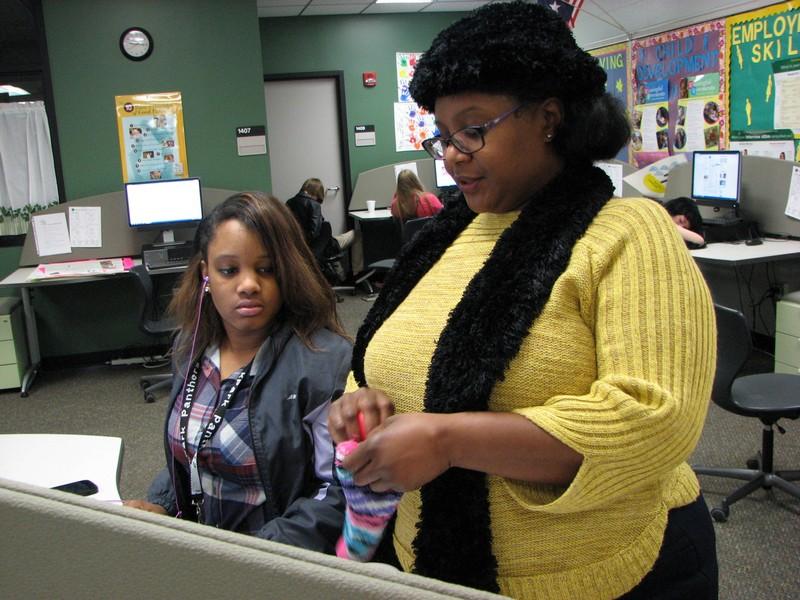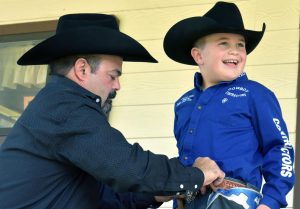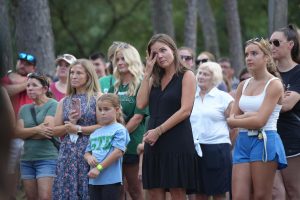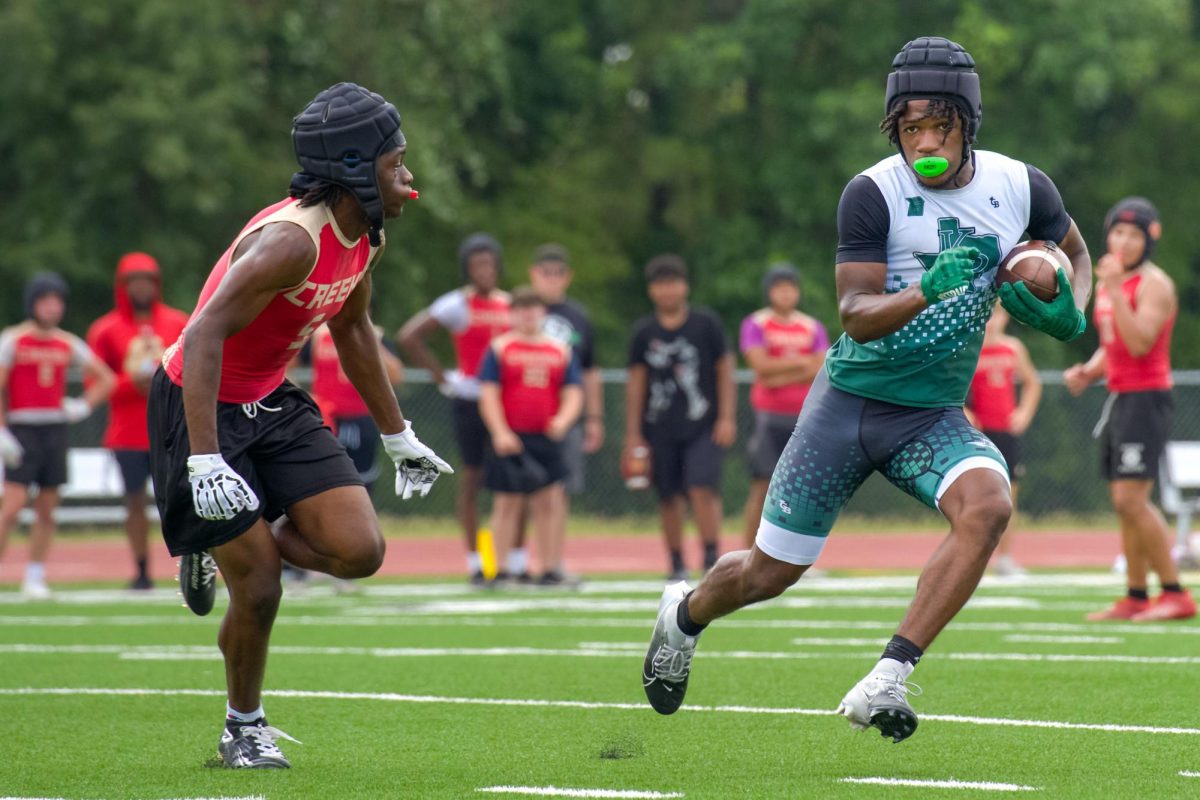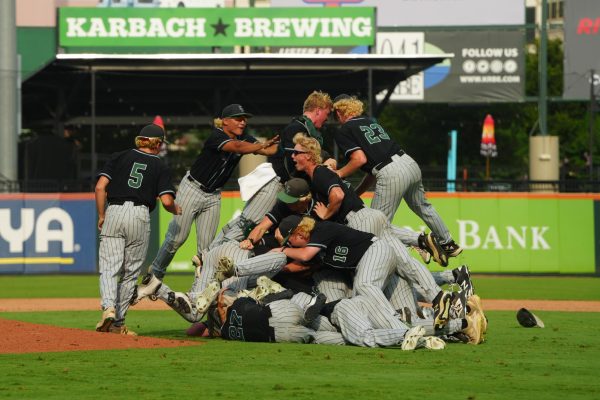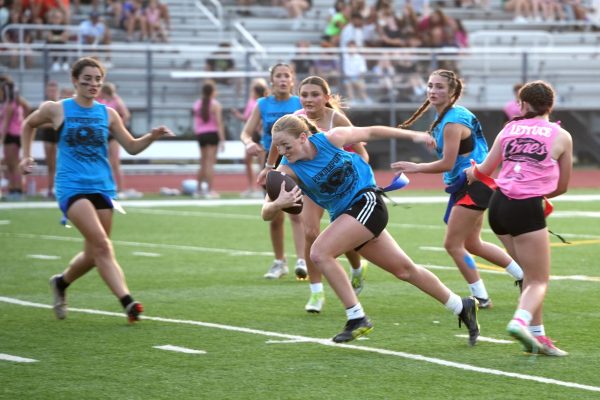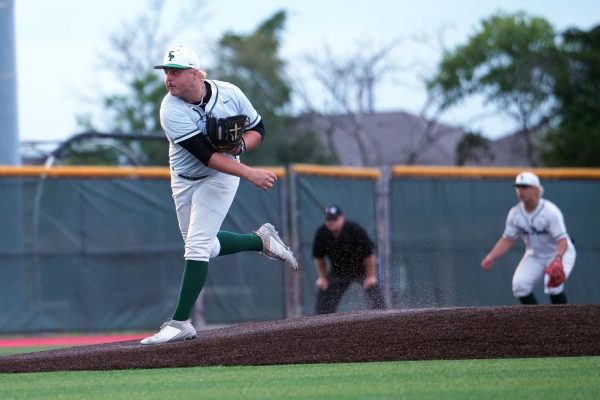Egg project offers students parenting experience
Child Development teacher Rolanda Wilkins checks the “baby” eggs during class. The students had to carry the eggs for three days, and each class period the eggs were checked for cracks and breaks.
December 15, 2014
Rolanda Wilkins’ first period Child Development class was seen carrying pink or blue eggs around the school in November. The students were given the eggs for a egg baby project. The project gave students the experience of caring for something so that they could understand the importance and responsibility that comes with being a parent.
“The students always want to carry a baby doll, but I use the egg because we discuss how we come from the ovum and sperm,” Wilkins said.
Students drew popsicle sticks to determine what gender their egg baby would be: blue for a boy and pink for a girl. Some also found out they were having multiples.
“I was happy with the gender I got because I would want a son in real life,” sophomore Steven Neeb said.
Many of the students had trouble with their eggs. Some dropped their eggs or cracked them. Others simply forgot they had children.
“I forgot it at my house at one point and had to drive back home and get it,” senior Sarah Clarke said.
For some students, the project was difficult because it was hard not to drop their egg. Keeping track of it was also a challenge. Most of the students saw it as easy and fun.
“It was more a fun thing to do than it was work,” Neeb said.
The students were required to name their eggs so the experience was as real as possible. Some students named their babies silly names. Neeb named his son Juhbrill and Clarke named her son Kent Clarke.
Child Development discusses all aspects of childhood from conception to school-age children. Students also learn the male and female reproductive systems as well as the importance of health, diseases, disorders and the birth process. The class gives students a view on how to take care of children of all ages.
“Ms.Wilkins is super fun and she’s enthusiastic, it’s a good way to start out the day,” Clarke said.


